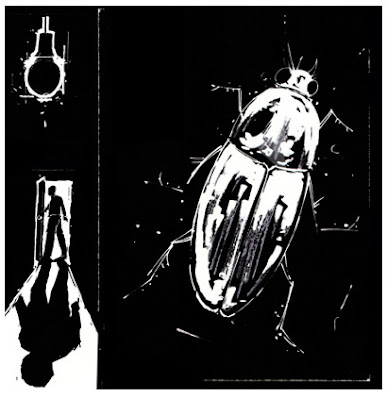Comparative Analysis
Franz Kafka's text of the “Metamorphosis” shows Gregor as the
provider of the family, although he transforms into an insect, he later is
unable to work. His father is forced to get a job to provide for the
family (which should have been his job already). Peter Kuper's film
of the “Metamorphosis” shows how Gregor is treated and ignored by his family
because of his transformation into an insect (half insect half human in the
film)...
Gender roles are visible in the modern world. Women are
supposed to equal the beautiful house wife, as with men equaling the support
beam. But in Franz Kafka's Metamorphosis, the characters aren't portraying the
modernized role of women and men. However, the film and the text differ in
gender roles. The text illustrates Gregor's sister, Grete, to be helpful around
the house... cooking, cleaning, etc. for Gregor. But the film shows her doing
little to nothing to help her brother after his transformation. The mother
seems worried about her son in the film. With the text, the mother doesn't seem
very caring about her son. It's amazing how the roles differ in the two. Some
scenes within the film are very similar to the illustration of the text.
The sister, Grete, still refuses to believe Gregor is her
brother since his transformation. She believes he will be the death of the
family if he stays any longer. The father goes through an outrage and throws
apples at Gregor out of anger. Each of these is similar within the text and the
film. People always say that the book or written version is always better than
the movie. Well, that also applies to this comparative analysis. The text
written by Franz Kafka illustrates more than the film by Peter Kuper. The
characteristics and roles of each character seem to be more realistic in the
text. Although, the text doesn’t tell us that Gregor transformed into a half
human half insect. But in the film it shows Gregor as a half human half insect.
Peter Kuper’s version of “Metamorphosis” seems played out.
Many different versions and short films have been released to show the
transformation of Gregor but none of them cover the full story of Gregor in
“Metamorphosis” by Franz Kafka.



